Information democracy
Powerful companies and governments control the way the internet and new technologies are deployed. These actors blur the lines on corporate power in ways that have tremendous impact on people and democracies. The dominant business model of ‘Big tech’ platforms is based on surveillance, polarization and power imbalances. This ‘surveillance capitalism’ has had a global impact on democracy. For example, state and private actors can use the internet and technologies to spread political disinformation, to manipulate electoral results, to attack human rights defenders and to limit civic space.
Filter resources
-
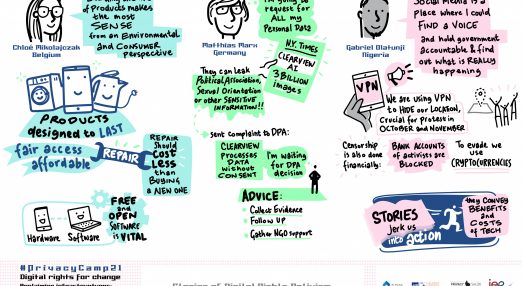
EDRi-gram, 27 January 2021
We hope many of you were able to join us at Privacy Camp 2021 yesterday which brought together 245 academics, activists and privacy experts from across the world. Stay tuned for the key takeaways. In this edition of the EDRi-gram we showcase the mobilisation efforts and victories so far from the #ReclaimYourFace campaign, share Privacy International's research on political ads and much more.
Read more
-
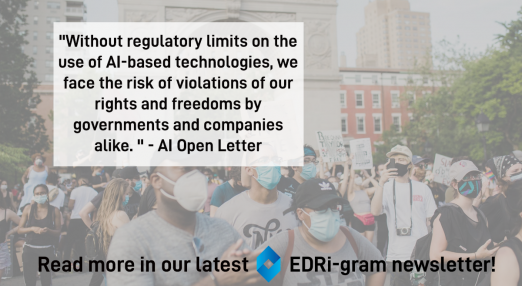
EDRi-gram, 13 January 2021
How can digital rights best contribute to reclaiming infrastructures, and how can reclaimed infrastructures sustain democratic practices, for a fair, people-centered, digital future in the EU? Join us at Privacy Camp 2021 to find out: https://privacycamp.eu/
Read more
-

Terrorist Content Online: Is this the end?
On 10 December, the European Parliament and the German Presidency acting on behalf of the Council reached a provisional agreement on the Regulation addressing the dissemination of terrorist content online.
Read more
-

EDRi-gram, 9 December 2020
In this final 2020 edition of the EDRi-gram, our wish is to start 2021 with more energy, momentum and resources to protect our rights and freedoms online. Would you consider donating to help make that happen?
Read more
-

Looking back at digital rights in the era of a surveillance pandemic
2020 started as a year to build momentum to tackle various digital rights issues, including mass surveillance and freedom of expression online. Needless to say, the global pandemic disrupted not only these efforts but also our health, personal relations, basic survival needs and ways to organise around human rights. After 9 months of living and working in a pandemic, we look back at what we achieved and the ways forward from here.
Read more
-
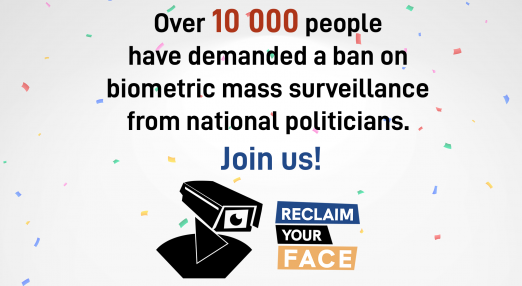
EDRi-gram, 25 November 2020
On 12 November 2020, 12 organisations from across the EDRi network launched the first ever pan-European civil society movement against biometric mass surveillance: Reclaim Your Face. Over 10 000 people signed the petition so far. Join us!
Read more
-

Walking from Luxembourg to Brussels in two hours
A public hearing before the European Court of Justice (ECJ) last Tuesday, November 10, dealt with the compatibility of Article 17, more precisely the provisions of Article 17 that require platforms to block copyright infringements, with the Charter of Fundamental Rights.
Read more
-

Japan Trade Deal punches USA-sized hole in privacy
EDRi member Open Rights Group discusses the challenges that the new UK-Japan trade agreement poses to data protection rights in the UK.
Read more
-
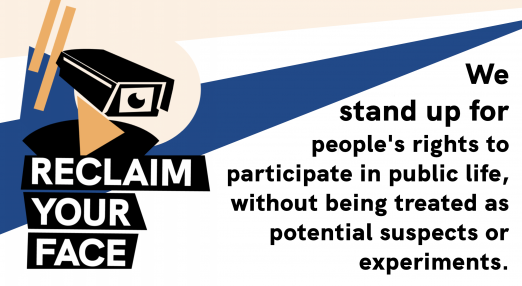
EDRi-gram, 12 November 2020
We have watched as governments have abused their power to put limits on people’s freedoms, and as companies have exploited the situation to gather ever more biometric data about us. The Reclaim Your Face coalition has risen up against the widespread abuse of our biometric data before and during the pandemic.
Read more
-
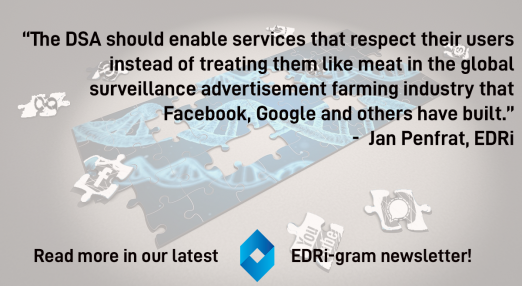
EDRi-gram, 28 October 2020
Data brokers are key actors in the hidden data ecosystem. The data they collect and later sell can be used for a range of different purposes, from commercial advertising to political campaigning, and in some worrying instances, law enforcement.
Read more
-

How the Parliament stakes out its DSA position
With three European Parliament positions on the Digital Services Act coming up, what will it mean for people's rights in the digital world?
Read more
-
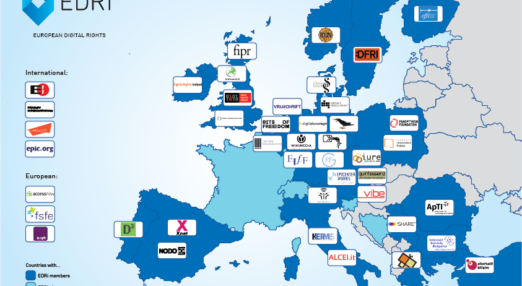
Member in the Spotlight series
“EDRi Member in the Spotlight” is a series in which our members introduce themselves and their work in an in-depth interview format.
Read more
